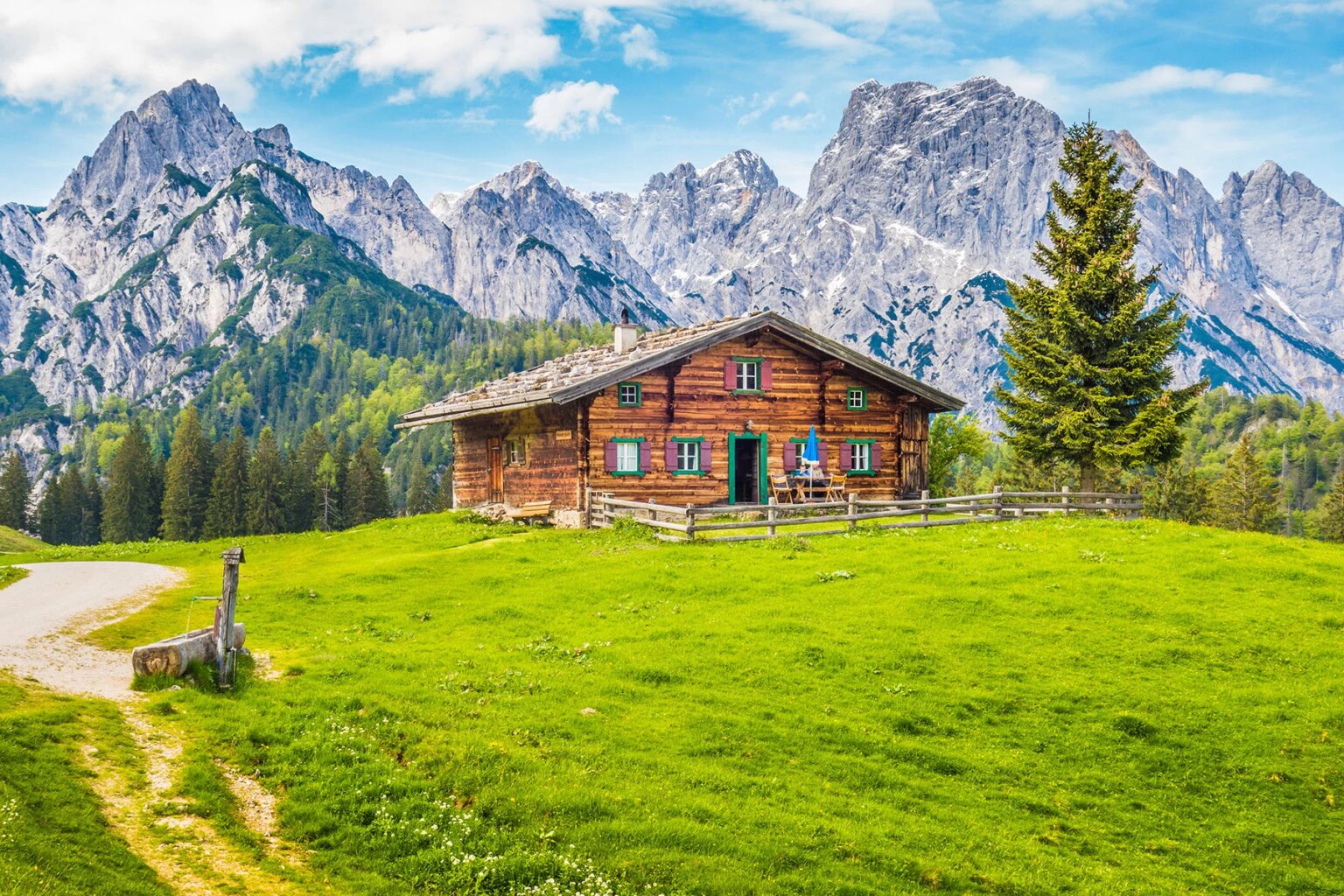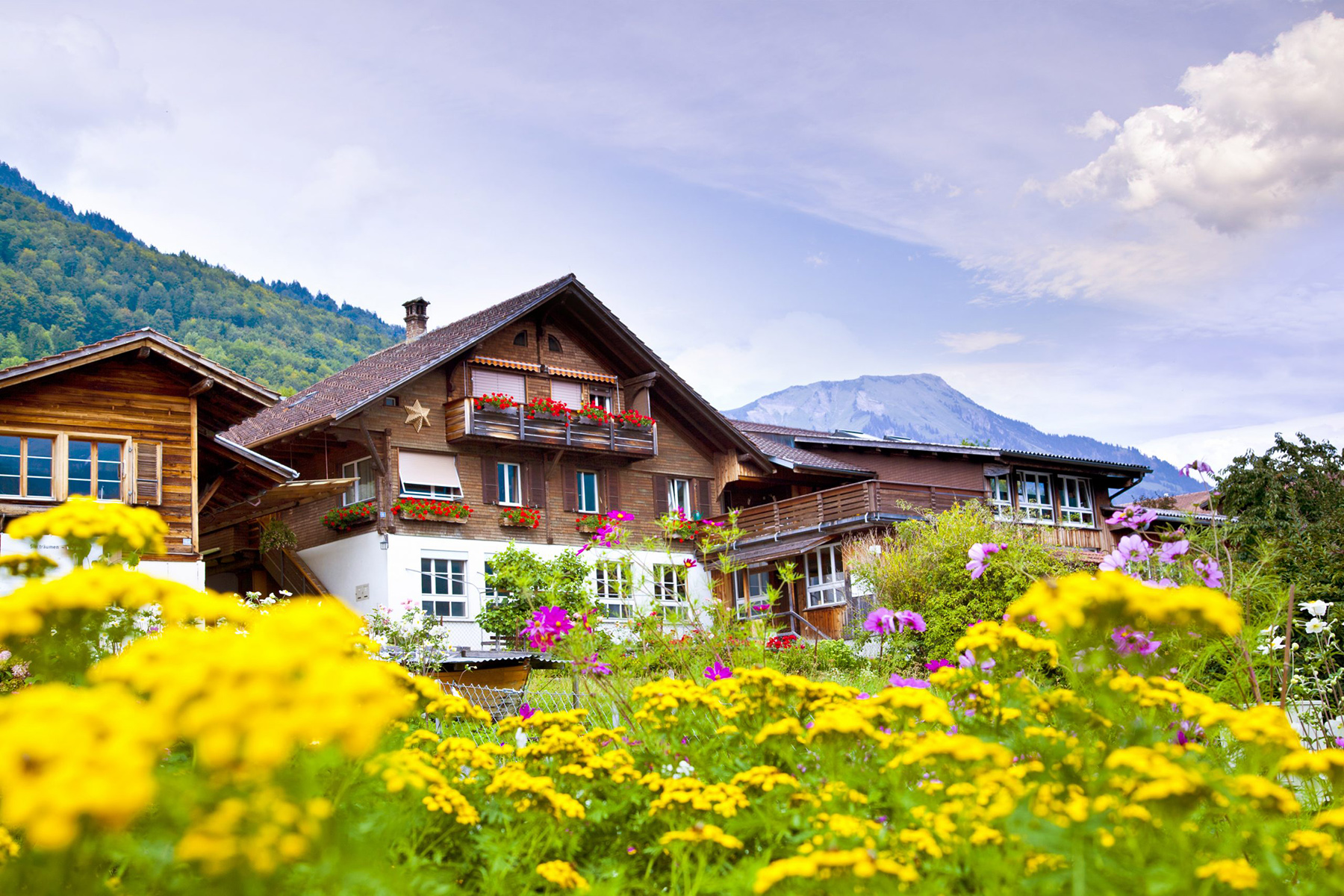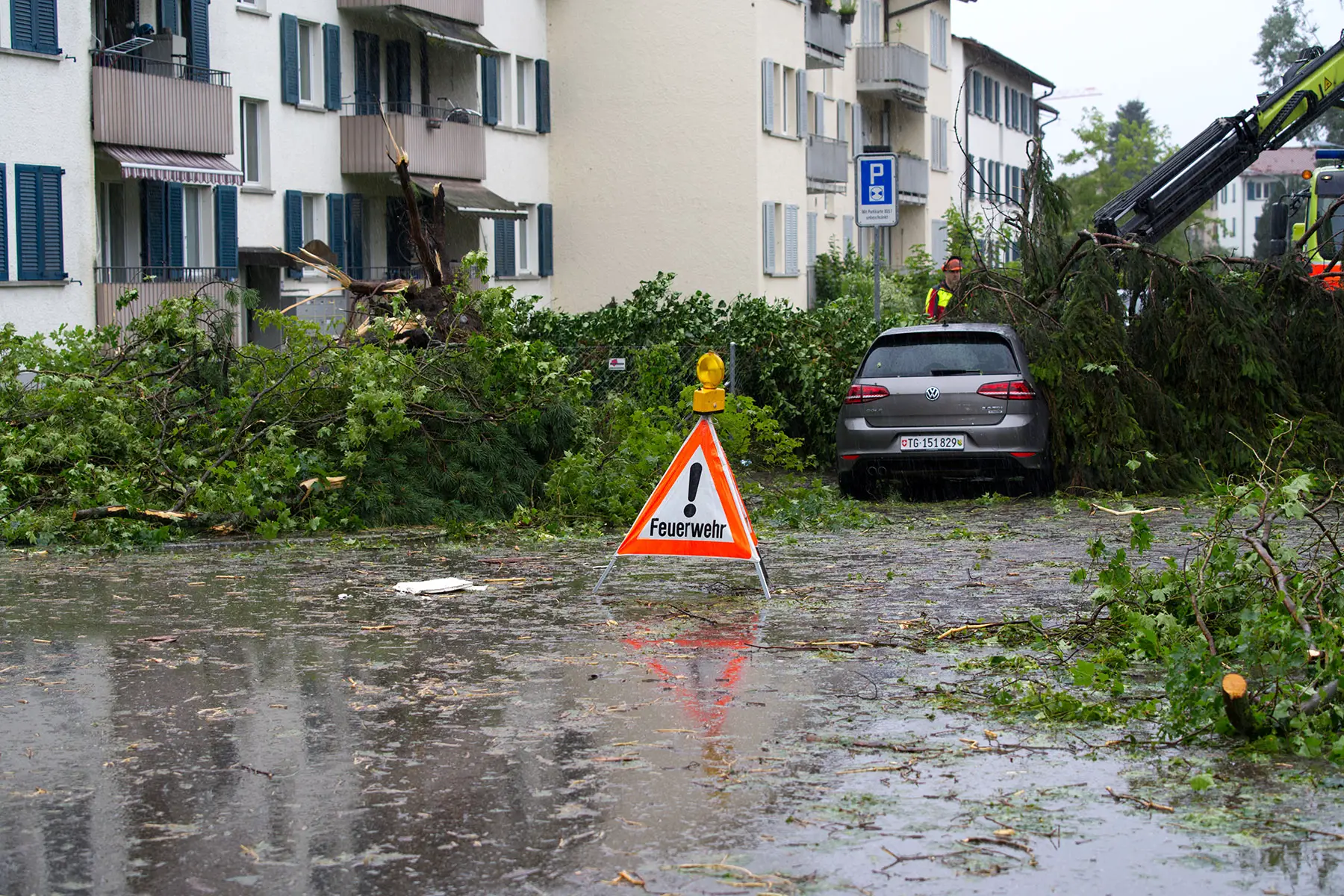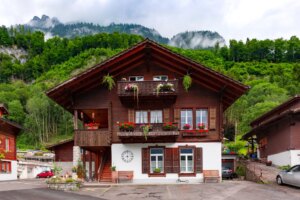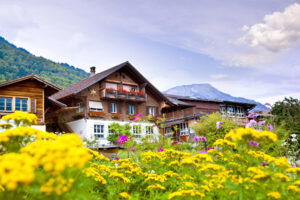The Swiss housing market can be a source of great confusion for expats moving to Switzerland. House prices vary dramatically from area to area and rules around foreign ownership and Swiss mortgages can fluster anyone. In this guide, we explain how you can buy real estate as an expat in Switzerland.
This guide to buying Swiss real estate includes sections on:
- Homeownership in Switzerland
- Should you rent or buy a house in Switzerland?
- House prices in Switzerland
- Can foreigners buy property in Switzerland?
- Costs of buying a property in Switzerland
- How to find a property to buy in Switzerland
- How to buy real estate in Switzerland
- Moving into your Swiss property
- Building a home in Switzerland
- Selling a home in Switzerland
Wise
Buying a property abroad is a big step and involves important financial decisions. Wise, an international money transfer company, provides specialist support to help you navigate large international transfers and save on exchange fees. Fill out Wise’s online form today to find out how they can assist you.
Homeownership in Switzerland
Homeownership levels in Switzerland are among the lowest in the world, measured at 37.4% of the population in 2016. Figures are lowest in Basel (16%) and Geneva (18.3%). This figure rises to nearly a third in Zurich.
Older Swiss residents are more likely to own their homes. 47.5% of over-65s are homeowners compared to only 26.1% of those aged between 25-65. The majority of homeowners live in more rural communities. The reasons for this are many: from population growth in cities straining the housing stock to rising prices and bureaucracy that delay property purchases.
Significant house price inflation in Switzerland resulted in the Swiss National Bank bringing in new regulations to lower household mortgage debt. The move caused house prices in Switzerland to drop in 2017.
Should you rent or buy a house in Switzerland?
With a hot property market and a slow home-buying process, many expats initially choose to rent when moving to Switzerland.
This isn’t to say that renting here is necessarily a positive experience for everyone. Indeed, in popular areas the private rental sector is ultra-competitive, with landlords receiving many inquiries for each property.
House prices in Switzerland
House prices in Switzerland have been growing steadily since around April 2019 and had a year-on-year increase of 2.1% in September 2020. This followed a dip in 2017 when purchase prices dropped for the first time in over 15 years.
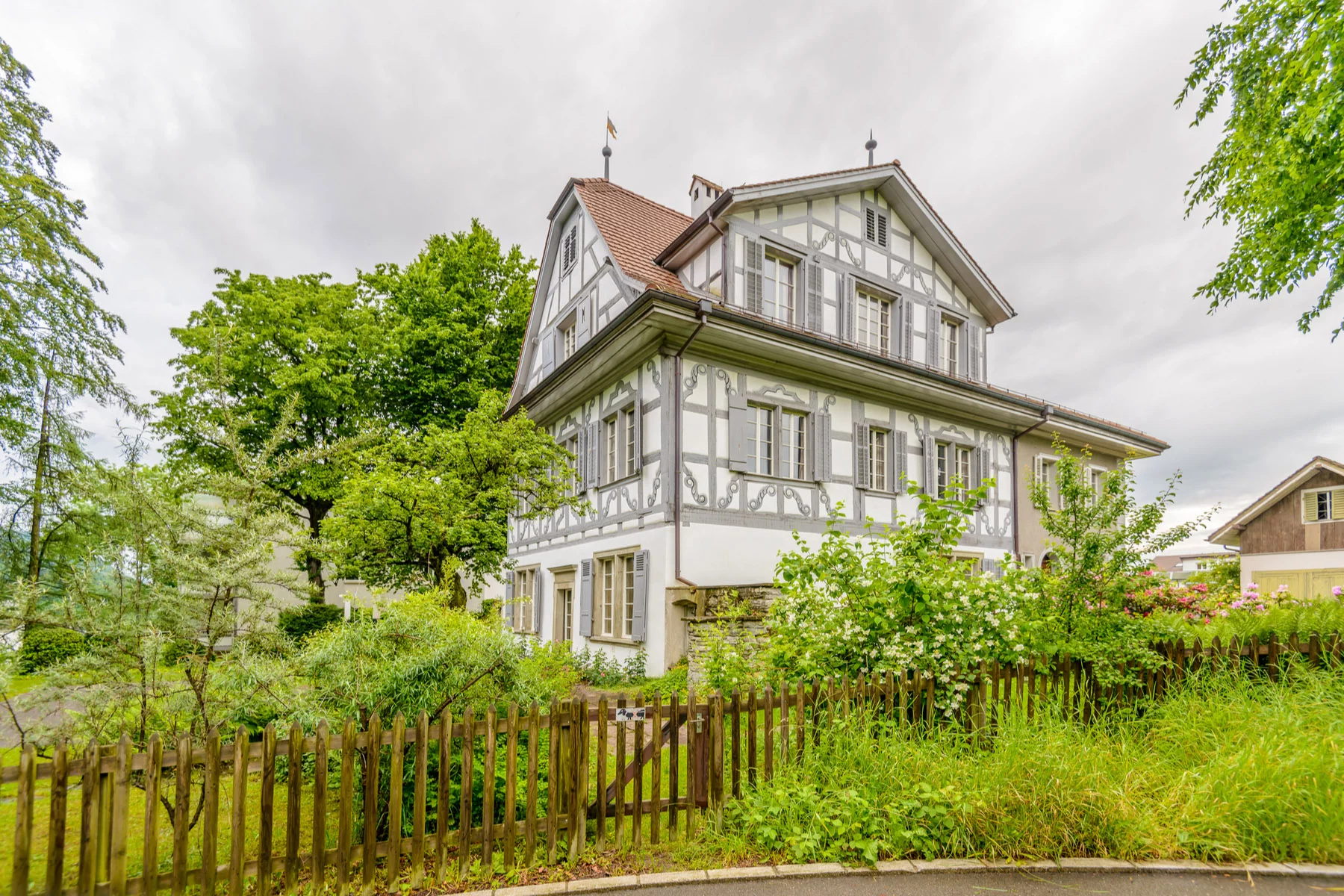
Between 2000–2016, Swiss house prices increased by a remarkable 80.5%, a trend that caused the Swiss National Bank to bring in stricter lending criteria and abandon its cap against the euro in an attempt to reduce investor demand.
Recent data shows that as of December 2020, the average asking price per square meter to buy a city center apartment was CHF 12,938 in Zurich, CHF 13,426 in Geneva, and CHF 13,967 in Lausanne.
Can foreigners buy property in Switzerland?
Switzerland has strict restrictions on foreigners buying property, so depending on your background, you may find your options limited. You can buy property in Switzerland if you:
- Are an EU or EFTA national with a Swiss residence permit who resides in Switzerland
- Hold a Swiss C Permit
In both cases, you have the same rights as a Swiss citizen to purchase property. You can buy investment properties, holiday homes, or commercial premises as well as a primary residence. If you hold a Swiss B Permit, you may also purchase a property, but only to live in.
Properstar
If you’re looking to buy property in Switzerland, Properstar can connect you with trusted local agents who know the market inside out. As the world’s largest global property platform, Properstar has the expertise to simplify real estate transactions and help you find your dream home today.
Those outside these categories, such as non-resident foreigners, foreign residents without a Swiss work permit (including those working for diplomatic missions, United Nations agencies, and CERN), or workers on short-term or seasonal work permits, may not be allowed to purchase property or may have to apply for a license to purchase.
Be aware that licensing criteria vary from canton to canton. It typically favors applicants purchasing a primary residence who have been settled in the canton for five years or more. There are a number of consultancies that are able to help you understand the process of buying Swiss property, such as Cosmos Value.
Life as a frontier worker: working in Switzerland and living elsewhere
Switzerland is a small country. Many of its major cities, including Geneva and Basel, are close enough to borders that it is possible to live in a neighboring country while working in Switzerland.
Property prices are typically cheaper across the border. If your work permit allows it, you may wish to consider becoming a frontier worker and buying property in France or getting a German property and a job in Switzerland.
Costs of buying a property in Switzerland
Although actual property costs are high, Switzerland is one of the cheapest places in Europe to buy property in terms of transaction costs. According to the Global Property Guide, total costs paid by the buyer are usually between 0.25–3.55% of the overall property cost. The seller pays between 3.23 – 5.38%.
Buyer’s costs include:
- Real Estate Transfer Tax, which is between 0.2% and 3.3%
- Registration fee (0.15%)
- Notary fees (0.1%)
How to find a property to buy in Switzerland
As in many other countries, most Swiss properties are online through estate agents and property portals. Property listings are also in all the main newspapers and specialist property papers. These are usually available from estate agents and in shopping malls for free.
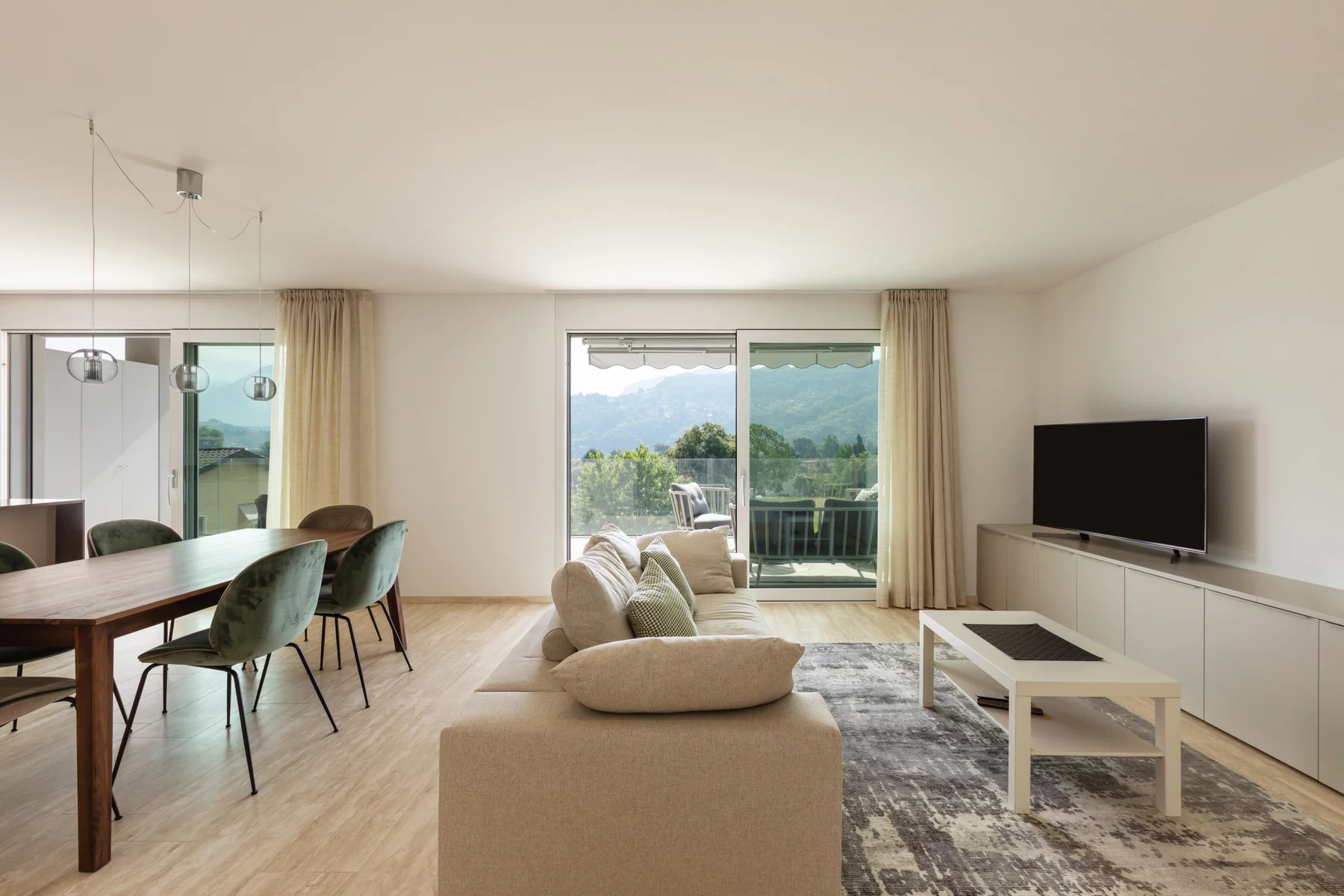
High competition for rental properties in Switzerland’s major cities means some apartments may have already been let by the time you see them listed.
In terms of buying and selling, property sales tend to move slowly, but local knowledge remains an advantage. Register with a local agent with access to off-market properties.
Main online property portals
Find a real estate agency in Switzerland
- Swiss Real Estate Association (SVIT)
- Swiss Union of Real Estate Professionals (USPI)(in French only). Active only in the Swiss Romand area. Visit regional sites for list of local members.
Large real estate agencies in Switzerland
- Moser Vernet & CIE
- Naef (in French only)
- Privera
- SPG (in French only)
- Wincasa
Zoning regulations in Switzerland are strict. While existing properties on agricultural land (farmhouses, for example) may be bought and used by people who are not agricultural workers, there may be tough limitations on new construction, extensions, or even repairs to buildings not required for agricultural work.
How to buy real estate in Switzerland
After you find your new home, you still must make an offer, find a mortgage, agree on the sale, and sign a contract.
This isn’t a process that moves quickly. In Switzerland, it is common for the process to last three months or more. When buying a home, you should budget 5% of the purchase price for fees and charges, including property transfer tax – which can be as much as 3% in some areas.
Choosing a property in Switzerland
In Switzerland, asking for a professional survey of the property is uncommon. Builders may take a request for a survey as a negative comment on the quality of their work. However, as the seller is not required to notify you of any issues, a survey may give you advance warning of serious problems, particularly with older properties.
You can find a variety of property types in Switzerland, from large detached houses to apartments in contained blocks. Minergie operates the standard for sustainability and energy efficiency in newly-built homes, with between 10–25% of new buildings Minergie-certified in the last 20 years, depending on the region.
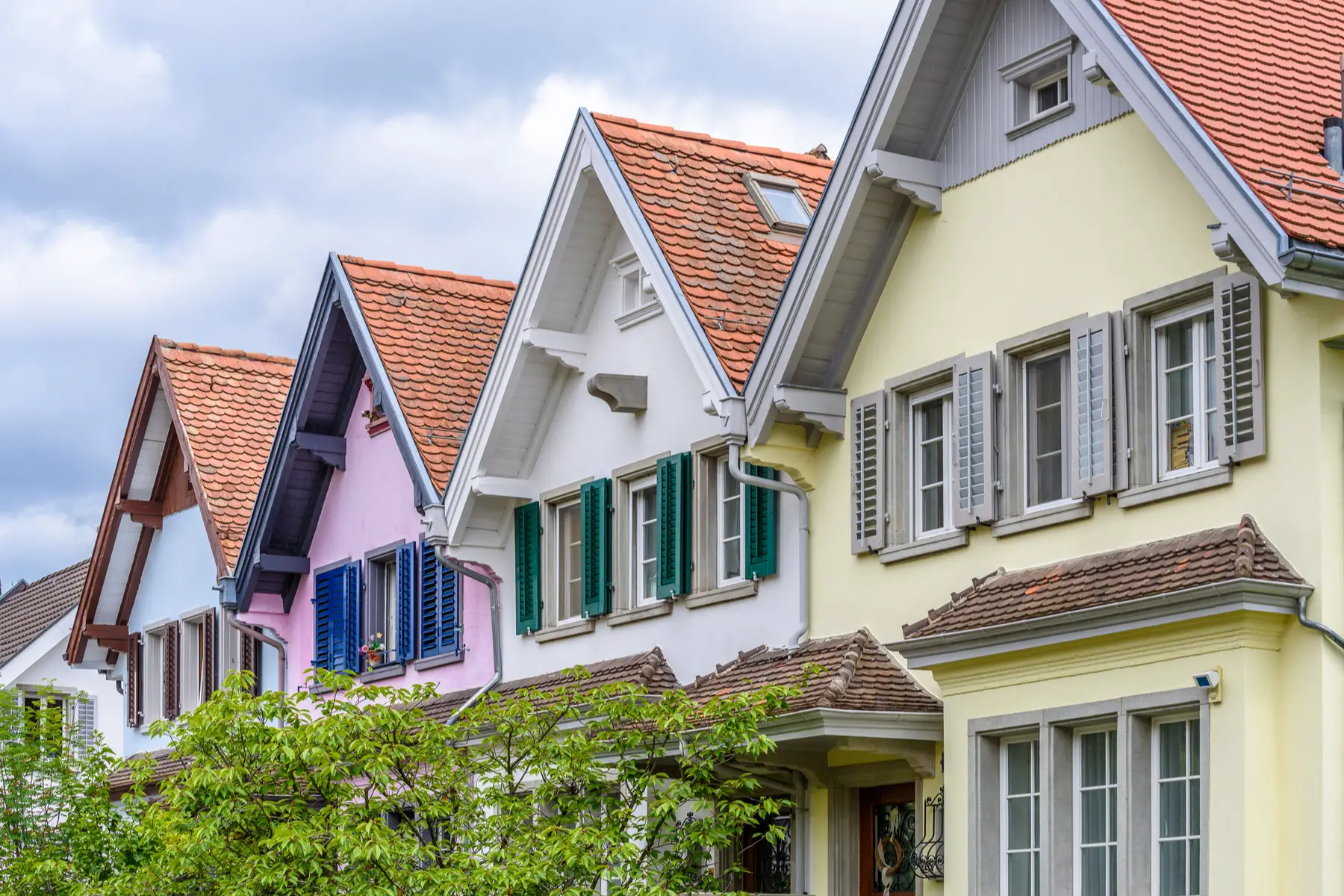
You might be familiar with paying a service charge for the maintenance of common areas if you live in an apartment. In Switzerland, however, even detached houses are likely to come with annual service charges for the maintenance of common areas such as car parks, boat docks, or private roads. For apartments, the cost can be around 1% of the purchase price each year.
Local property taxes in Switzerland vary enormously from commune to commune as well as from canton to canton. Ask about the level of taxation when shopping around for properties.
Organizing your finances
Another crucial part of purchasing a property abroad is organizing your finances. If you have income from different countries or in various currencies, this may seem like a more complicated process.
However, you have many options when it comes to purchasing property in Switzerland. If you currently live in the country, you can open a domestic bank account. If you do not, you may want to speak to a financial advisor or consider a specialized money transfer service that can help you send money from a bank account outside Switzerland to purchase your property.
Wise, for example, has a specialist team to help move large transfers abroad and can save you money on exchange fees.
Getting a Swiss mortgage
Before making an offer, you must apply for a mortgage from a bank. Mortgages can be arranged directly with lenders, but also with a mortgage broker that provides negotiation between the seller, the lender, and when required, signs the contract on the client’s behalf.
When you apply, the lender assesses the value of the property you are considering and decides whether to offer you a mortgage. A 20% deposit is typically the minimum necessary, including at least 10% in cash.
There are no general assistance schemes in Switzerland to help with the costs of buying property. If you don’t have the minimum 20% to contribute towards a mortgage, you are unlikely to be able to buy a Swiss home. The only help available is to first-time buyers. Some mortgage providers offer lower interest rates to help people onto the property ladder.
If you need help navigating the mortgages available in Switzerland, it’s worth reaching out to an advisor such as:
HYPOHAUS also provide an online mortgage calculator so you can find out which type of financing is best for you and how much you can borrow.
Making an offer on a home in Switzerland
How much you can borrow when taking out a mortgage may determine the offer you can make on a property. Once you decide on a bid, communicate this offer to the seller, either through your estate agent or directly. Estate agents in Switzerland typically work for the seller. This means you should take their claims with a pinch of salt.
If the offer is accepted, you may need to pay a deposit at this stage. If so, a notary holds this in escrow. You still need a written agreement covering the circumstances in which the deposit will be forfeit or returned.
You also must inform your mortgage provider that your offer was successful and complete any remaining paperwork with them. They then inform the notary that the method of payment is complete and the sale can go ahead.
Completing a real estate purchase in Switzerland
In Switzerland, a notary handles the property transfer. In many Swiss cantons, notaries are public officers working for both buyer and seller. The buyer may suggest a notary or you may wish to select one yourself.
The notary will typically:
- Draw up the contract;
- Hold the buyer’s funds in escrow;
- Complete the official transfer of the property;
- Register the change of ownership;
- Ensure that all legal formalities are complete;
- Be able to advise on the legitimacy and legality of a transaction.
Sale contracts in Switzerland
A public notary usually draws up the sales contract. Indeed, in some cantons, this is required by law – and thus is fairly standard. However, if you are unfamiliar with the area or do not speak the local language, get your own legal representation to explain the details of the agreement. As the mortgage is agreed prior to the sale contract, your mortgage provider may check the contract for you, perhaps for free. Swiss law stipulates that the buyer and seller must be able to understand the local language or give power of attorney to a person that can sign on their behalf.
Moving into your Swiss property
Insurance
You will need to purchase building insurance if you buy property in Switzerland. This typically covers fire, flooding, and other natural disasters and you can also purchase additional coverage.
Optional home insurances in Switzerland are contents insurance for household possessions and third-party liability insurance to cover accidents to visitors to your home.
Utilities and telecommunications
In addition to organizing insurance coverage, you will also need to arrange providers for things such as electricity, water, internet, and TV. The Swiss market is highly privatized when it comes to most of these things so you will need to do a bit of shopping around to find the best deals.
See our guide to getting connected to Swiss utilities for more detailed information.
Building a home in Switzerland
You can buy land and build your own Switzerland real estate, although you will need to have a permit to do so. Land in Switzerland is fairly expensive, starting at around CHF 150 per square meter and rising to over CHF 2,000 per m/sq. The average cost is around CHF 350 per m/sq.
On top of this, you will need to pay construction costs. These will depend on factors such as type of house, number of floors, and materials used.
Selling a home in Switzerland
Unless you’re buying a retirement home, you’ll probably want to sell your property at some point.
Fees for selling a house are normally in the range of 3-5% for the seller. If you use an agency, expect to pay a fee of at least 0.5% of the selling price. Capital gains tax applies to property sales in Switzerland. You may also have to pay tax if you gift property to someone.
When you sell a Swiss home, you have a liability to inform the buyer of any defects in the property. Failure to do this could result in a compensation claim being made against you.
The process of selling Switzerland real estate involves many stages. These usually include:
- Setting a selling price to serve as the basis for negotiation. You can do this by having the property valued, either by an expert or using an online valuation tool.
- Creating a detailed sales document that includes things such as photos, a building plan, and property description.
- Advertising the property through channels such as websites, real estate agents, and classified ads. If you use an agent, you can search for a reputable one through the Swiss Real Estate Association (SVIT) or the Swiss Union of Real Estate Professionals (USPI Suisse). Remember that you will have to pay to use a Swiss realtor.
- Drawing up a contract once your home is sold. This is done through a notary. Some Swiss cantons provide official public notaries, otherwise, you will have to hire a private notary.
- Making financial arrangements to receive the initial deposit from the buyer, followed by the full agreed amount at the point of sale. Once the money has gone through, you will need to pay any taxes owed on the sale.
